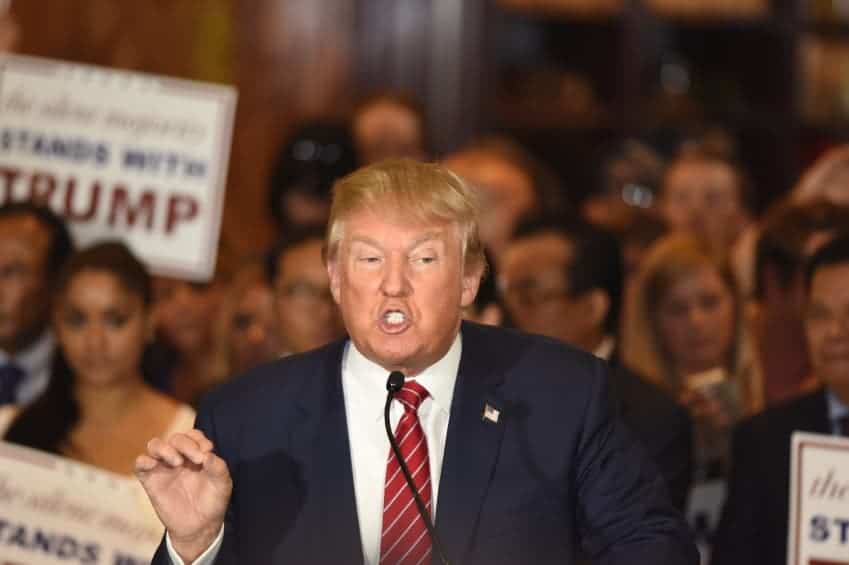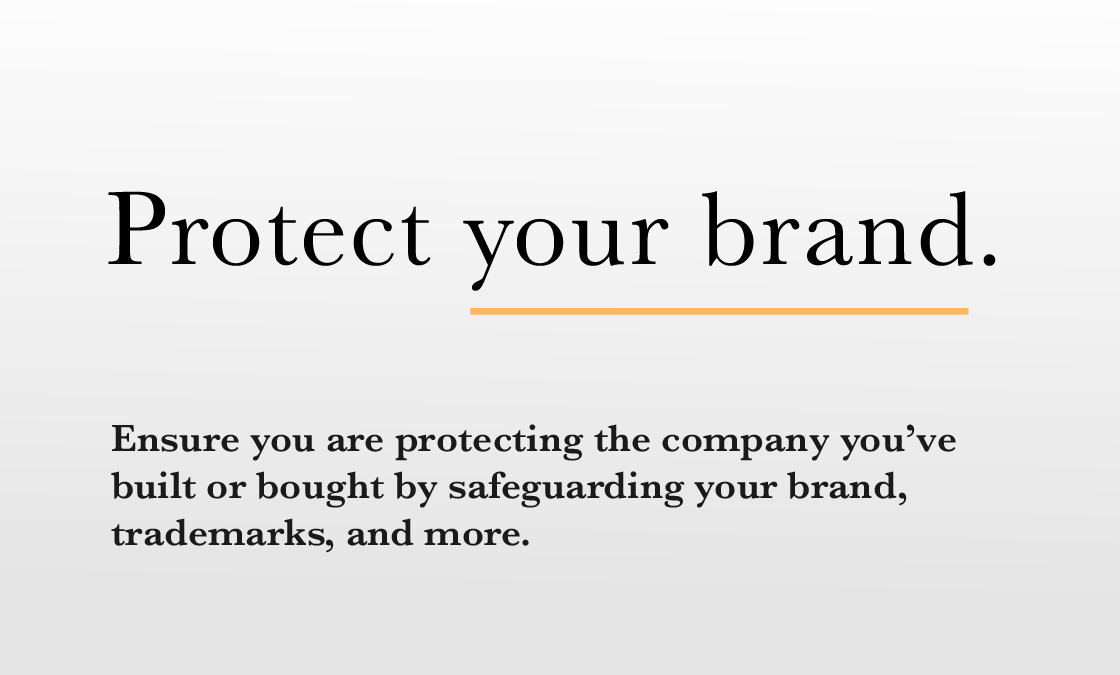The name brand ambassador says it all. Similar to an ambassador for a foreign country, the goal of that person is to represent the brand in a positive light and bring consumers closer to the product or service that it sells. However, just like in politics, some ambassadors can do more harm than good.
Brand ambassadors can come in various forms. There are inherent brand ambassadors who represent a company because their name is on the product. Some are celebrity ambassadors who are paid to advertise the product. Others are employees from within the company – paid or not.
It is important to understand the various forms of ambassadors in order to know how they best represent your brand. Failing to recognize disasters they may cause can lead to damage to your brand. “Forewarned is forearmed” is also a statement to keep in mind. You should always have a plan in the event an ambassador puts your brand into the negative spotlight.
Here is a quick overview of the various types of ambassadors and how to deal with a brand disaster.
Celebrity and other paid ambassadors
The most recognizable type of ambassador is one that is paid to represent your brand. This not only includes celebrity ambassadors, but even local ambassadors such as a college student being paid to wear a specific clothing brand on campus. It all comes down to someone receiving compensation to showcase and represent your brand in a positive light.
Celebrity ambassadors are easy to recognize. If you don’t think so, then check out the following and you will see what I am talking about.
- What shoe company does Michael Jordan represent?
- Fabio just can’t believe this about the brand he is an ambassador for.
- What type of dairy treat does Bill Cosby like?
- Even if you don’t watch wrestling, you still know what Randy Savage likes to step into.
- By the number of times you see her in these commercials, you would think that Jessica Simpson is a licensed dermatologist.
I am willing to bet that you know the products behind all of these.
In fact, these are some of the most recognizable brand endorsements of all time. Whenever you think of the person mentioned, chances are that you think of the product they endorse. This is good for the brand, but can spell disaster if something bad happens to the celebrity (e.g., Jared Fogle and Subway – more on that later).
Donald Trump and Sean Combs:
Outside of paid ambassadors, companies have inherent ambassadors. These people are crowned such on the basis of founding or leading a company. Great examples are Donald Trump and Sean Combes (a.k.a. – Puff Daddy).
Donald Trump has his own line of clothing that until recently was sold at Macy’s stores throughout the United States. Another clothing line sold by Macys is that of Sean Combes, an inherent ambassador for his company Sean John. Both are ambassadors simply because their names are stamped on the brand. Their actions carry over into the product as you will see below.
Donald Trump came under fire in 2015 for what some perceived as negative comments towards Mexicans and illegal immigration. Regardless of your take on the topic, you can agree that the situation caused issues for his brand. So much so that Macys – who also had a stake in the deal since Trump is an inherent ambassador for its store by virtue of them selling his product – dropped his clothing line.
Sean Combs came under fire as well in 2015 for allegedly assaulting an assistant coach on his son’s college football team (Go Bruins!). Despite the media coverage, his brand did not suffer the hit that Trump’s did, and Macys even continues to sell the brand.
Employee brand ambassadors:
Employee ambassador programs are becoming ever more popular and for good reason.
People trust referrals from family and friends, but will often trust an employee more. They see employees as the ultimate test of a company’s product or services. After all, if the employee is on board with what the company is selling, then it must be something worth investing in.
The best example I can give is when you walk into the Nike store to buy a pair of shoes. If the salesperson is wearing a pair of Reeboks, this says something about the brand they are selling.
Some companies are pushing for employee ambassadors in order to counteract any negative talk that could come from disgruntled employees. If an employee is not talking good about their company, then they could be talking bad. There are many reasons why an employee may want to spread negativity about their workplace. Reasons aside, bad mouthing an employer can cause loss of revenue on a major scale.
If you are not embracing employees and turning them into ambassadors, then you are leaving it open for them to ruin your brand. This does not mean that all employees will talk bad about you, but keep in mind that ALL employees are ambassadors – paid or not. Do you want them working for you or against?
Companies that have great employee ambassadors include Ben and Jerrys and Chick fil A. There are plenty of articles out there about how they accomplish this and the return on investment they receive from it.
Dealing with brand disasters:
There are numerous ways to deal with disasters caused by brand ambassadors, but the most popular and affective way is to distance yourself from them in the time of crisis. Once recent example is that of Subway.
In 2015, its decade long spokesperson plead guilty to possessing child pornography, among other charges, and was sentenced to 15+ years in federal prison. Jared had been the spokesperson for Subway going back to 2000 and had launched the brand into becoming known as a “healthy fast food” chain. Despite not being very active with the brand since 2008, he is still the “face” of the brand and is associated with it in the public eye.
Fogle is now serving time in the same facility as former Illinois Governor Rod Blagojevich, but Subway is still left with a disaster caused by one of its ambassadors. Luckily for Subway, the public was able to distance Fogle from the company and there was not much damage control needed. The company also took the necessary action to let everyone know that they were not associated with his conduct.
Subway did what was needed which was to publicly distance themselves from Fogle. While Jared took a basing in the public eye – and deservedly so – Subway was able to separate themselves from the incident and avoid a brand disaster. Some brands have not been so lucky.
Additional things you can do include preparing for a disaster in advance. Do not expect that an ambassador knows your message. Prep them so that they talk about and portray your brand in the manner you want it. You also should also have a disaster plan in place (e.g., media contacts to reach immediately to get out a statement) in case things go horribly wrong.
Summing it up
Regardless of your take on ambassadors, you need to make sure you monitor and keep them in check. Even if you do not pay for ambassadors (e.g., celebrities), you still have them representing your brand (e.g., employees).
I recommend having an employee ambassador program in place in order to not only reward employees for positively representing your brand, but to give them a reason to want to talk good about your brand.
If you do hire outside ambassadors, do your homework and choose those who will likely do you more good than harm. In the event of a brand disaster involving an ambassador, take steps to distance yourself from their conduct and make sure people are aware that you do not endorse the conduct that caused the disaster.
Have any other examples of how ambassadors have caused brand disasters? Would love to hear about them below.






![Law in the Digital Age: Exploring the Legal Intricacies of Artificial Intelligence [e323]](https://www.pashalaw.com/wp-content/uploads/2023/11/WhatsApp-Image-2023-11-21-at-13.24.49_4a326c9e-300x212.jpg)
![Unraveling the Workforce: Navigating the Aftermath of Mass Layoffs [e322]](https://www.pashalaw.com/wp-content/uploads/2023/07/Untitled-design-23-300x212.png)
![Return to the Office vs. Remote: What Can Employers Legally Enforce? [e321]](https://www.pashalaw.com/wp-content/uploads/2023/01/Pasha_LSSB_321_banner-300x212.jpg)
![Explaining the Hans Niemann Chess Lawsuit v. Magnus Carlsen [e320]](https://www.pashalaw.com/wp-content/uploads/2022/10/LAWYER-EXPLAINS-7-300x169.png)
![California v. Texas: Which is Better for Business? [313]](https://www.pashalaw.com/wp-content/uploads/2021/07/Pasha_LSSB_CaliforniaVSTexas-300x212.jpg)
![Buyers vs. Sellers: Negotiating Mergers & Acquisitions [e319]](https://www.pashalaw.com/wp-content/uploads/2022/06/Pasha_LSSB_BuyersVsSellers_banner-300x212.jpg)
![Employers vs. Employees: When Are Employment Restrictions Fair? [e318]](https://www.pashalaw.com/wp-content/uploads/2022/05/Pasha_LSSB_EmployeesVsEmployers_banner-1-300x212.jpg)
![Vaccine Mandates Supreme Court Rulings [E317]](https://www.pashalaw.com/wp-content/uploads/2022/02/WhatsApp-Image-2022-02-11-at-4.10.32-PM-300x212.jpeg)
![Business of Healthcare [e316]](https://www.pashalaw.com/wp-content/uploads/2021/11/Pasha_LSSB_BusinessofHealthcare_banner-300x212.jpg)
![Social Media and the Law [e315]](https://www.pashalaw.com/wp-content/uploads/2021/10/WhatsApp-Image-2021-10-06-at-1.43.08-PM-300x212.jpeg)
![Defining NDA Boundaries: When does it go too far? [e314]](https://www.pashalaw.com/wp-content/uploads/2021/09/Pasha_LSSB_NDA_WordPress-2-300x212.jpg)
![More Than a Mistake: Business Blunders to Avoid [312] Top Five Business Blunders](https://www.pashalaw.com/wp-content/uploads/2021/06/Pasha_LSSB_Blunders_WP-1-300x212.jpg)
![Is There a Right Way to Fire an Employee? We Ask the Experts [311]](https://www.pashalaw.com/wp-content/uploads/2021/02/Pasha_LSSB_FireAnEmployee_Website-300x200.jpg)
![The New Frontier: Navigating Business Law During a Pandemic [310]](https://www.pashalaw.com/wp-content/uploads/2020/12/Pasha_LSSB_Epidsode308_Covid_Web-1-300x200.jpg)
![Wrap Up | Behind the Buy [8/8] [309]](https://www.pashalaw.com/wp-content/uploads/2020/11/Pasha_BehindTheBuy_Episode8-300x200.jpg)
![Is it all over? | Behind the Buy [7/8] [308]](https://www.pashalaw.com/wp-content/uploads/2020/09/iStock-1153248856-overlay-scaled-300x200.jpg)
![Fight for Your [Trademark] Rights | Behind the Buy [6/8] [307]](https://www.pashalaw.com/wp-content/uploads/2020/07/Fight-for-your-trademark-right-300x200.jpg)
![They Let It Slip | Behind the Buy [5/8] [306]](https://www.pashalaw.com/wp-content/uploads/2020/06/Behind-the-buy-they-let-it-slip-300x200.jpg)
![Mo’ Investigation Mo’ Problems | Behind the Buy [4/8] [305]](https://www.pashalaw.com/wp-content/uploads/2020/05/interrobang-1-scaled-300x200.jpg)
![Broker or Joker | Behind the Buy [3/8] [304] Behind the buy - Broker or Joker](https://www.pashalaw.com/wp-content/uploads/2020/04/Joker-or-Broker-1-300x185.jpg)
![Intentions Are Nothing Without a Signature | Behind the Buy [2/8] [303]](https://www.pashalaw.com/wp-content/uploads/2020/04/intentions-are-nothing-without-a-signature-300x185.jpg)
![From First Steps to Final Signatures | Behind the Buy [1/8] [302]](https://www.pashalaw.com/wp-content/uploads/2020/04/first-steps-to-final-signatures-300x185.jpg)
![The Dark-side of GrubHub’s (and others’) Relationship with Restaurants [e301]](https://www.pashalaw.com/wp-content/uploads/2015/04/When-Competition-Goes-Too-Far-Ice-Cream-Truck-Edition-300x201.jpg)
![Ultimate Legal Breakdown of Internet Law & the Subscription Business Model [e300]](https://www.pashalaw.com/wp-content/uploads/2019/05/Ultimate-Legal-Breakdown-of-Internet-Law-the-Subscription-Business-Model-300x196.jpg)
![Why the Business Buying Process is Like a Wedding?: A Legal Guide [e299]](https://www.pashalaw.com/wp-content/uploads/2019/03/futura-300x169.jpg)
![Will Crowdfunding and General Solicitation Change How Companies Raise Capital? [e298]](https://www.pashalaw.com/wp-content/uploads/2018/11/Will-Crowdfunding-and-General-Solicitation-Change-How-Companies-Raise-Capital-300x159.jpg)
![Pirates, Pilots, and Passwords: Flight Sim Labs Navigates Legal Issues (w/ Marc Hoag as Guest) [e297]](https://www.pashalaw.com/wp-content/uploads/2018/07/flight-sim-labs-300x159.jpg)
![Facebook, Zuckerberg, and the Data Privacy Dilemma [e296] User data, data breach photo by Pete Souza)](https://www.pashalaw.com/wp-content/uploads/2018/04/data-300x159.jpg)
![What To Do When Your Business Is Raided By ICE [e295] I.C.E Raids business](https://www.pashalaw.com/wp-content/uploads/2018/02/ice-cover-300x159.jpg)
![General Contractors & Subcontractors in California – What you need to know [e294]](https://www.pashalaw.com/wp-content/uploads/2018/01/iStock-666960952-300x200.jpg)
![Mattress Giants v. Sleepoplis: The War On Getting You To Bed [e293]](https://www.pashalaw.com/wp-content/uploads/2017/12/sleepopolis-300x159.jpg)
![The Harassment Watershed [e292]](https://www.pashalaw.com/wp-content/uploads/2017/12/me-2-300x219.jpg)
![Investing and Immigrating to the United States: The EB-5 Green Card [e291]](https://www.pashalaw.com/wp-content/uploads/2012/12/eb-5-investment-visa-program-300x159.jpg)
![Responding to a Government Requests (Inquiries, Warrants, etc.) [e290] How to respond to government requests, inquiries, warrants and investigation](https://www.pashalaw.com/wp-content/uploads/2017/10/iStock_57303576_LARGE-300x200.jpg)
![Ultimate Legal Breakdown: Employee Dress Codes [e289]](https://www.pashalaw.com/wp-content/uploads/2017/08/Ultimate-Legal-Breakdown-Template-1-300x159.jpg)
![Ultimate Legal Breakdown: Negative Online Reviews [e288]](https://www.pashalaw.com/wp-content/uploads/2017/06/Ultimate-Legal-Breakdown-Online-Reviews-1-300x159.jpg)
![Ultimate Legal Breakdown: Social Media Marketing [e287]](https://www.pashalaw.com/wp-content/uploads/2017/06/ultimate-legal-breakdown-social-media-marketing-blur-300x159.jpg)
![Ultimate Legal Breakdown: Subscription Box Businesses [e286]](https://www.pashalaw.com/wp-content/uploads/2017/03/ultimate-legal-breakdown-subscription-box-services-pasha-law-2-300x159.jpg)
![Can Companies Protect Against Foreseeable Misuse of Apps [e285]](https://www.pashalaw.com/wp-content/uploads/2017/01/iStock-505291242-300x176.jpg)
![When Using Celebrity Deaths for Brand Promotion Crosses the Line [e284]](https://www.pashalaw.com/wp-content/uploads/2017/01/celbrity-300x159.png)
![Are Employers Liable When Employees Are Accused of Racism? [e283] Racist Employee](https://www.pashalaw.com/wp-content/uploads/2016/12/Are-employers-liable-when-an-employees-are-accused-of-racism-300x159.jpg)
![How Businesses Should Handle Unpaid Bills from Clients [e282] What to do when a client won't pay.](https://www.pashalaw.com/wp-content/uploads/2016/12/How-Businesses-Should-Handle-Unpaid-Bills-to-Clients-300x159.png)
![Can Employers Implement English Only Policies Without Discriminating? [e281]](https://www.pashalaw.com/wp-content/uploads/2016/11/Can-Employers-Impliment-English-Only-Policies-Without-Discriminating-300x159.jpg)
![Why You May No Longer See Actors’ Ages on Their IMDB Page [e280]](https://www.pashalaw.com/wp-content/uploads/2016/10/IMDB-AGE2-300x159.jpg)
![Airbnb’s Discrimination Problem and How Businesses Can Relate [e279]](https://www.pashalaw.com/wp-content/uploads/2016/09/airbnb-300x159.jpg)
![What To Do When Your Amazon Account Gets Suspended [e278]](https://www.pashalaw.com/wp-content/uploads/2016/09/What-To-Do-When-Your-Amazon-Account-Gets-Suspended-1-300x200.jpg)
![How Independent Artists Reacted to Fashion Mogul Zara’s Alleged Infringement [e277]](https://www.pashalaw.com/wp-content/uploads/2016/08/How-Independent-Artists-Reacted-to-Fashion-Mogul-Zaras-Alleged-Infringement--300x159.jpg)
![Can Brave’s Ad Replacing Software Defeat Newspapers and Copyright Law? [e276]](https://www.pashalaw.com/wp-content/uploads/2016/08/Can-Braves-Ad-Replacing-Software-Defeat-Newspapers-and-Copyright-Law-300x159.jpg)
![Why The Roger Ailes Sexual Harassment Lawsuit Is Far From Normal [e275]](https://www.pashalaw.com/wp-content/uploads/2016/07/WHY-THE-ROGER-AILES-SEXUAL-HARASSMENT-LAWSUIT-IS-FAR-FROM-NORMAL-300x159.jpeg)
![How Starbucks Turned Coveted Employer to Employee Complaints [e274]](https://www.pashalaw.com/wp-content/uploads/2016/07/iStock_54169990_LARGE-300x210.jpg)
